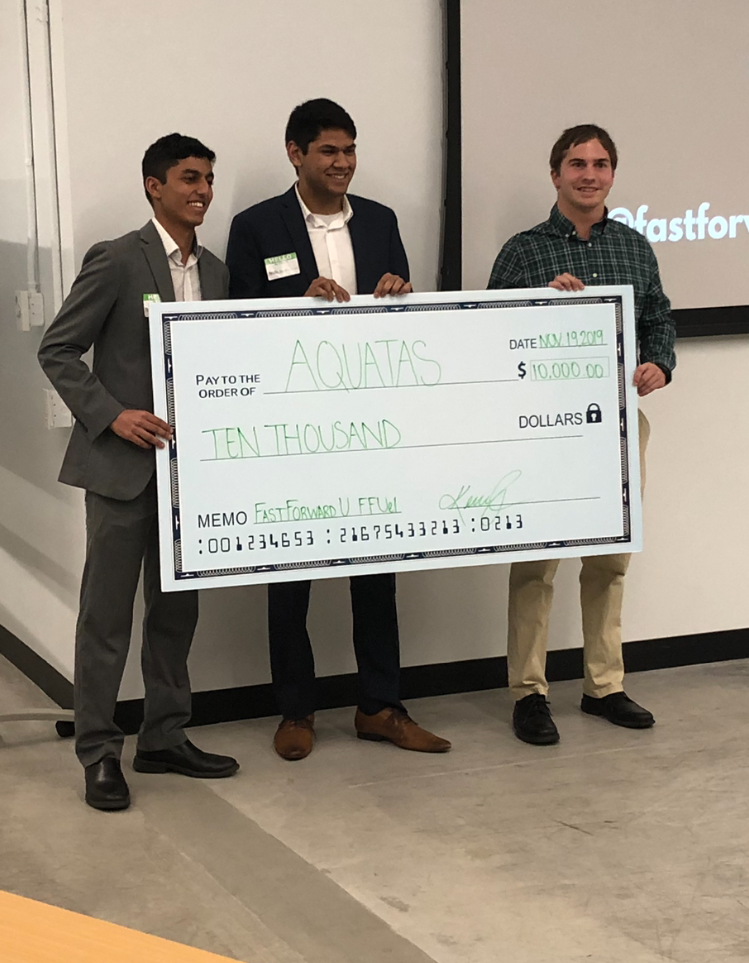Johns Hopkins University’s FFUel accelerator program held demo day for its first cohort Tuesday night, allowing teams to pitch their startup at the Fast ForwardU Homewood space.
FFU is JHU’s hub for student entrepreneurship and innovation, providing coworking space, educational and social programming and competitive funding opportunities to assist students in their pursuit of entrepreneurship.
This event was the culmination of the teams’ participation in the nine-week accelerator program, which launched this semester.
“All these teams have a really good case to make, but the fact that one will be able to take this money and keep their work going past this accelerator is really an instrumental part of what this program is designed to do,” said Kevin Carter, student program manager at FFU.
Out of over 50 team applicants, here are the five teams that participated in the accelerator and pitched at Demo Day:
Aquatas: Winner of $10,000
CEO Paarth Sharma, CFO Anish Mokha and CTO Zachary Schmidt pitched an affordable water purification system that seeks to address the growing issue of clean water shortage in developing regions around the world.

The product allows users to pour in dirty water, and give it a few pumps in order to enjoy clean water. This provides an efficient, simple method for retrieving clean water without requiring heavy infrastructure or even electricity.
“We’re all really passionate and love working on Aquatas, so it’s really nice to know that other people feel the same way and validate what we’ve done,” Mokha said.
Sharma said the money will be used to fund a longitudinal pilot for the product in the spring and develop a market-ready product.
First Friday’s Group

First Friday’s Group (1FG) Founder Kristofer Madu pitched the company, which connects college communities by assisting creative-minded students in developing a piece of performance art such as rapping, singing and DJing. 1FG also provides a platform for students to display their talent by organizing social events.
Braegen

Project lead Deborah Weidman pitched a medical device startup that seeks to combat glioblastoma, an aggressive form of brain cancer, with a cranial implant that uses direct drug delivery to prevent tumor recurrence, extend patient lifespan and revolutionize treatment of brain tumors.
CortiTech

Sun Jay Yoo pitched a medical device startup that is developing Radiex, a neurosurgical retractor designed to increase patient safety while maximizing surgical operability of deep-seated lesions. Retraction is the act of pushing apart brain tissue in order to access a lesion. This patent-pending product provides a minimally invasive device for care facilities.
Ithemba

This startup looks to expand breast cancer diagnosis internationally through a reusable, core-needle biopsy (CNB) driver. This device contains a chamber that collects contaminants and separates the needle attachment from the spring mechanism that fires the disposable needle, allowing it to be easily sterilized with a bleach wipe. The name for the startup comes from the Zulu word meaning “hope,” which aligns with the team’s mission to provide a low-cost, reliable device for underserved communities. The company was pitched by Valerie Zawicki, Sophia Triantis, Madeline Lee and Laura Hinson.







